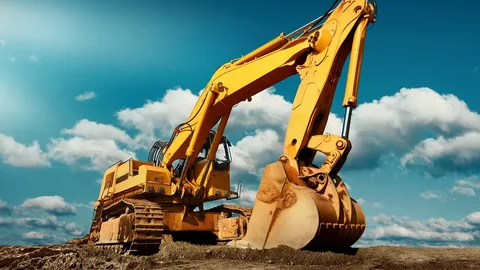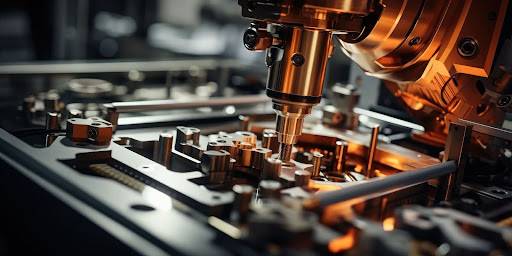
When managing a construction or landscaping project, having the right equipment is crucial for efficiency and success. Excavators are among the most versatile and indispensable machines on any job site, capable of handling tasks such as digging, grading, and material handling. However, deciding whether to invest in an excavator rental or purchase one outright can be challenging. Each option has its pros and cons, and the right choice depends on the specifics of your project, budget, and long-term needs.
In this guide, we’ll explore the advantages and drawbacks of excavator rental and ownership, helping you determine which option makes the most sense for your project.
Benefits of Excavator Rental
Renting an excavator offers flexibility and cost savings, making it a popular choice for businesses with short-term or specialized project needs.
Cost-Effectiveness for Short-Term Use
Renting is often the most economical choice for projects with a defined timeline. Instead of making a significant upfront investment, you pay only for the duration you need the equipment. This can free up capital for other aspects of your project.
- No Long-Term Commitment: If you only need an excavator for a few weeks or months, renting eliminates the financial burden of ownership.
- No Depreciation: Owned equipment loses value over time, but with rentals, you avoid depreciation costs entirely.
Access to the Latest Equipment
Rental companies often update their inventory with the latest models, ensuring access to modern technology and features.
- Improved Efficiency: Newer excavators typically offer enhanced performance, fuel efficiency, and operator comfort.
- Specialized Models: Renting allows you to choose specific models tailored to your project’s unique requirements.
Maintenance and Repairs Included
Most rental agreements cover maintenance and repairs, saving you time and money.
- Reduced Downtime: If a rented excavator malfunctions, the rental company typically provides a replacement quickly, minimizing project delays.
- No Maintenance Costs: You won’t need to budget for routine upkeep or unexpected repairs.
Flexible Terms
Excavator rental agreements can be tailored to fit your project’s needs, offering daily, weekly, or monthly options.
- Scalable Solutions: If your project scope changes, you can easily adjust the rental period or swap for a different model.
Drawbacks of Excavator Rental
While renting offers many advantages, it’s not without its limitations.
Higher Long-Term Costs
For projects that require extended use, renting can become more expensive than owning. The cumulative rental fees may surpass the cost of purchasing an excavator.
- Recurring Payments: Unlike ownership, where you pay upfront or finance the purchase, rentals require ongoing payments.
Limited Availability
During peak construction seasons, demand for rental equipment can exceed supply.
- Potential Delays: If the excavator you need is unavailable, it could delay your project timeline.
Lack of Customization
Rental equipment often comes in standard configurations, which may not meet all your project’s requirements.
- Limited Accessories: Attachments or modifications might not be available, limiting the machine’s versatility.
Benefits of Owning an Excavator
Owning an excavator can be a cost-effective and practical solution for businesses with frequent or long-term equipment needs.
Long-Term Cost Savings
If you regularly use an excavator, ownership can save money over time by eliminating recurring rental fees.
- One-Time Investment: After the initial purchase, ongoing costs are limited to maintenance, repairs, and storage.
- Resale Value: Well-maintained excavators retain a portion of their value, allowing you to recoup some costs if you decide to sell.
Always Available
Owning equipment ensures it’s readily available whenever you need it.
- No Scheduling Issues: You won’t have to worry about rental availability or waiting for equipment to be returned.
Full Customization
Ownership allows you to modify or accessorize the excavator to meet your specific needs.
- Attachment Options: Add specialized tools like grapples, breakers, or augers to increase functionality.
- Brand Familiarity: Operators can become more proficient with a machine they use regularly, improving efficiency.
Tax Advantages
Purchasing equipment may offer tax benefits, such as depreciation deductions or incentives for capital investments.
- Section 179 Deduction: In some cases, businesses can deduct the full purchase price of qualifying equipment in the year it’s purchased.
Drawbacks of Owning an Excavator
While owning an excavator has its perks, it also comes with challenges that may make it less practical for certain businesses.
High Initial Investment
Purchasing an excavator requires a significant upfront cost, which can strain budgets.
- Financing Requirements: Many businesses rely on financing, adding interest to the total cost.
- Opportunity Cost: The money spent on an excavator could be used for other investments or expenses.
Maintenance and Repair Costs
As the owner, you’re responsible for all maintenance and repair expenses.
- Routine Maintenance: Regular oil changes, filter replacements, and inspections add to operational costs.
- Unexpected Repairs: Mechanical issues or part failures can lead to costly downtime and repairs.
Storage and Transportation
Owning an excavator requires adequate storage space and a plan for transportation to job sites.
- Storage Costs: Keeping large equipment protected from the elements can require expensive facilities.
- Logistics Challenges: Transporting heavy machinery adds complexity and expense to project planning.
How to Decide Between Renting and Owning
Choosing between excavator rental and ownership depends on several factors, including project scope, frequency of use, and financial considerations.
When Renting Makes Sense
- Short-Term Projects: Renting is ideal for one-time or seasonal projects where the equipment isn’t needed long-term.
- Budget Constraints: For businesses that can’t afford a large upfront investment, rentals offer a more accessible option.
- Specialized Needs: If your project requires unique equipment for a specific task, renting allows you to access the right machine without committing to ownership.
When Owning Makes Sense
- Frequent Use: If you use an excavator regularly, ownership can provide better value over time.
- Established Business: Companies with stable finances and consistent project demands benefit from owning their equipment.
- Customization Needs: If you require specific modifications or attachments, owning allows for greater flexibility.
Conclusion
The decision between excavator rental and ownership depends on your project’s unique requirements and your business’s long-term goals. Renting offers flexibility, reduced upfront costs, and access to modern equipment, making it a smart choice for short-term or specialized tasks. On the other hand, owning an excavator provides availability, customization, and long-term savings for businesses with frequent equipment needs.
By carefully evaluating the pros and cons of each option, you can make an informed decision that aligns with your project’s timeline, budget, and operational needs. Whether you choose to rent or buy, having the right excavator is essential for completing your project efficiently and successfully.




